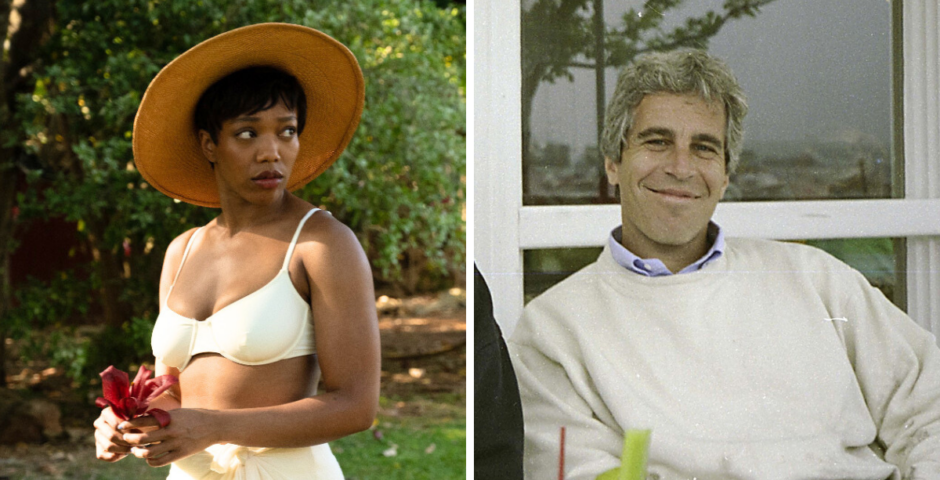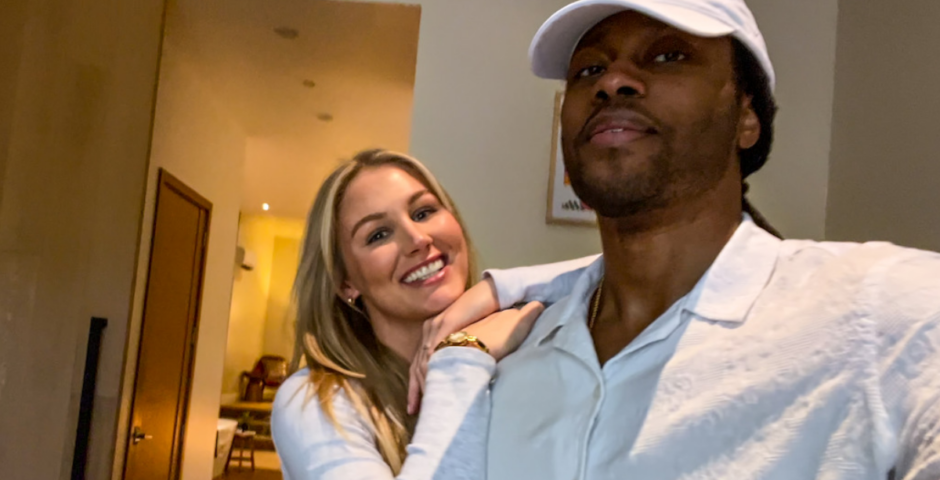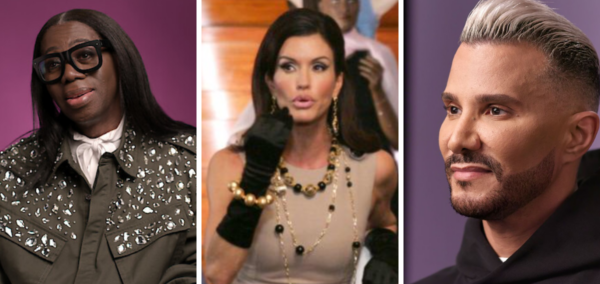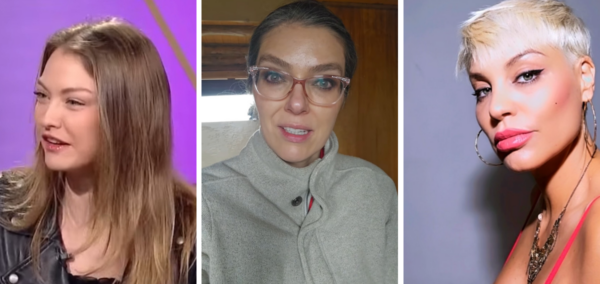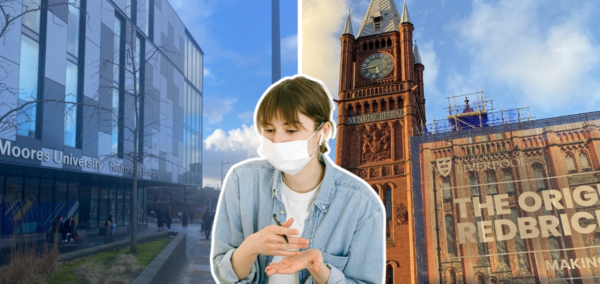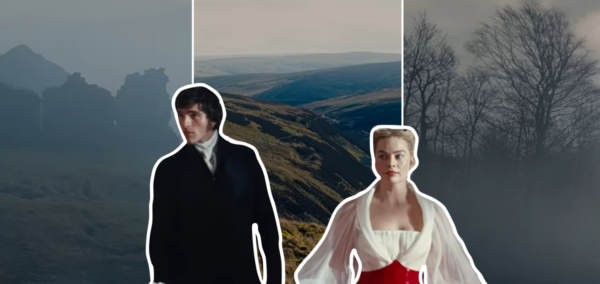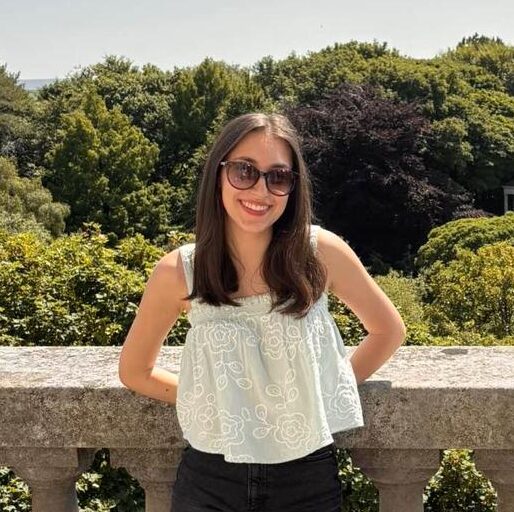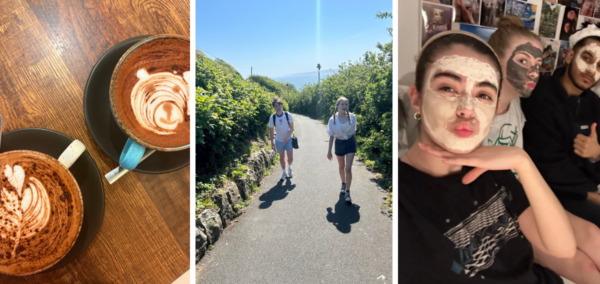
Re-staging a Greek tragedy: Warwick Drama Society presents their brand new show Electra
An exclusive interview with WUDS about their foreboding new show, Electra
If matricide, a family curse, and general brooding unease sounds like an excellent way to end your week, Warwick University’s Drama Collective Society’s ’ Electra has got you covered. To give you all more insight into the production, The Warwick Tab talked with Vi, the brilliant lead who plays the titular role. But we didn’t stop there – we also spoke to Diya and Sam, director and co-producer respectively and the two pillars of creative and practical direction for our poignant student-led restaging of Sophocles’ forebodingly intense Electra.

Talking to Vi Padamsee, who plays Electra
Why did you want to be involved in this production of Electra?
Purely because before this, I had never been involved in anything to do with Greek tragedy. I hadn’t read the play before I auditioned, but I had read Sophocles’ Antigone and the idea of these female characters having so much time and effort put into their characters within a production felt very new and exciting to me. I loved the idea that she was this young, strong female character who had a lot to say because I don’t think I’ve ever played a character that’s like that; I felt really drawn to that.
Electra really speaks her mind, doesn’t she?
I mean, she does talk a fair amount!
A lot of lines to memorise! How’s that been going?
It’s been difficult. I’ve never played a lead before in anything, so having that many lines to learn was definitely a new challenge. But like I just knew I needed to get started on it as early as possible. So, as soon as I got the script I started working on that. Figuring out lines has been a really big part of figuring out character for me, so it’s been really good.
Has the language in the script been modernised?
No, it’s still in the archaic ancient Greek vernacular, essentially. But as much as the language is obviously archaic, this character represents a lot of emotions that a lot of teenage girls would have had, and even now have continued to have. And so, even though it’s such an archaic way of speaking, it feels like the emotions are fully present. And you can access them pretty easily.
What do you love about playing Electra?
To get to that childishness of her character, because everything that’s going on is just because she believes it. And that is such a teenage girl thing to do. It’s just been such an incredible thing, to be able to connect to parts of her that I understand myself, despite it being so big as a Greek tragedy.
A fun one now! Can you think of one celebrity in particular you’d like to see tackle your role?
Because I love her as an actor, and I think she can do anything – Jodie Comer could be so good in the role! Either her or Cate Blanchett. I don’t know why I’m thinking of blonde people, I’m not blonde!
Why these two?
For Jodie Comer, I’ve seen her in Prima Facie and the kind of depth of emotion that she’s able to connect to is incredible. I think Cate Blanchett does the same thing in Tar. Jodie Comer feels so deeply. There’s all these micro expressions going on and individual physical movements that feel very like the character. And I feel like she could do it really well, by kind of maintaining a kind of physicality.

Talking to Diya Sengupta, the director
Electra is a passion project of sorts for you; what made you decide on adapting this play specifically?
I was reading a lot of Greek tragedies for quite a while, just because I find them quite interesting, and I came across Electra. Even though there is this grandiose nature to Greek tragedy, there was something very real and very human about Electra. It was all about a teenage girl going through the motions of grieving and loss and happiness and excitement. The reason why I personally think it comes across so well in a modern context is because it is very much focused on the emotions. To me, ‘Electra’ felt so real and so tangible. It just felt right to put it on.
You had to give it a go?
Yes! I was reading E.F Watling’s translation, which isn’t the one we’re using now, but there was something that connected. I connected so much to the characters in it and immediately after I read it, I started reading articles and watching video essays, doing all this extra research. And I thought to myself, if I’m putting in so much extra effort because it’s something I’m interested in, I should take it further. I felt like I had a place in the story and a place to develop and add to it.
Did any theatrical styles or genres influence your adaptation of Electra?
Honestly, my main source of inspiration was Andrew Scott’s Hamlet. Which is quite rogue, I know. I remember watching it. I didn’t watch it in person unfortunately, but I watched a recording of it and the manner of delivery, especially Andrew Scott, in which he did the to be or not to be monologue, felt so real. And I felt like that was the first time I truly understood that monologue. And I think there’s something very beautiful about adding naturalism to dialogue that isn’t explicitly naturalistic. So that was the main idea I had going into Electra; I wanted every movement to be very naturalistic and I didn’t want it to be that inspired by traditional Greek tradition of epic, lots of monologue, because I feel like it is quite isolating. And I don’t think it translates to a contemporary audience that well.
Tell me more about what the process of working with the cast to develop their characters during rehearsal is like.
My process has been very much character-based. In our rehearsal schedule, we made it clear to have a character-based workshop every single week and it was all about developing physicality, developing intention and emotions. Before the auditions, I had created this Pinterest board of ideas I had for the characters and I showed it to the cast and I went: How do you feel about this? Do you think this reflects well with your character? We’ve had so many conversations about intentions and feelings, and I’ve been asking questions like: Who do you think is the most important family member to you? If they were a bar, what drink would your character get? Otherwise, it has been a process of trusting the cast. I say this a lot- just be you on stage. Just feel and experience. And it’s really come across in the way that the cast interact and in the way their relationships have developed on stage.
Talking to Sam Jones, the producer
What was your approach for casting Electra?
Sam: Lizzie, Diya, and I were in the audition room for three hours after the auditions happened, and there were disagreements at some points. I think Diya had a very clear vision on how she wanted each character to be. So all of us would discuss and try to understand who would fit which role best, what kind of attributes we were looking for…
Three hours?
Diya: I mean, our last day of auditions finished at 7pm and we left the room at 10pm trying to figure out who to recall. So it was very much a long conversation. Three hours of talking and pacing.
Sam: But I think that the main challenge wasn’t us disagreeing on who we wanted to recall. It was mainly because we were just kind of overwhelmed with the talent that we were presented with. We had to narrow it down at some stage and it was really, really difficult to do that.
Diya: Because everyone we saw was phenomenal! Seriously, it was such a privilege to be able to be in that room with so many people who had such creative intelligences. I think we both learned a lot from every single audition, more about the characters, more about where we wanted to go directorially. It was a constant process; it was. I think it was very good for evolution.
Sam: Yes, everyone takes on the characters so differently. As much as you can have a directorial vision, you don’t really know who your actors are going to be; you don’t know who’s going to audition for your production. So you do learn a lot!

We’ve obliquely covered this, but can you expand on how do you handle creative differences or any challenges within the production team?
Diya: For a certain role or who we wanted to recall for a certain role, it was a matter of stepping back and going, OK, why do you want this person? I think it was a lot about learning about how everyone thought. I don’t think there were any arguments about it. It was just hearing and communicating.
Sam: In terms of auditions, really about bringing it to like the bare bones. We had to keep it simple. Diya: I also feel like a big thing for us as well is that we needed fun moments. Well, because when you’re in that audition room, you’re thinking so analytically about everything. Sometimes we had breaks where we would mess around to kind of clear our heads because otherwise you get too stuck into it and too pedantic. And that’s not what you need to be in an audition room. There was a piano in that room; Sam was playing it a bit. We had snacks. It was just about keeping ourselves grounded.
Sam: I’d say, aside from like the whole audition process, with our production, we’re trying to be very, very collaborative. Just being open, which I think we’ve constantly stayed. We’re very, very eager to listen!
Big team effort?
Sam: For sure. And you can see that in our whole marketing team, with everyone’s different ideas… Sometimes our set designer gets involved. There’s all sorts.
I’ll end with a big one- how is this production bringing something new to Sophocles’ Electra?
Diya: Electra looks so much at humanity and at emotion. I feel like there’s a lot of modern translations with great merit to them, but I do think that there is also such merit in taking these older translations and making something new out of it, which is something that I’ve loved about this process so far.
Sam: Also the creativity of our team… We have really talented lighting designers and set designers who are doing a great job with that and adding some really interesting new ideas that me and Diya didn’t even consider but loved.
Diya: And we’re doing something pretty new with the chorus. We’re having them act as the three fates, which I haven’t seen any other interpretations do, but I could be wrong. But it’s just constantly having a new creative process, with as many people’s ideas in it as possible!
And this is a student-led production, does that dimension add something?
Diya: I keep saying that Electra is a teenage girl. And I’m a teenage girl, you know? So I understand her. I think a lot of this play is just about the realities of being young, so it being a student production with so many young people in the team means that we all have something to add from our personal experience. I think there’s all a little bit of all of us in Electra. We’ve got our youth as a creativity tool. So I think that’s why it being a student production is so perfect!
Electra runs from Thursday 7th to Saturday 9th March 2024. You can grab tickets from the Warwick Arts Centre website, or here, for your ease.
Related stories recommended by this writer:
• Inside Warwick Fight Night 2024: Our uni’s most explosive annual Muay Thai event


